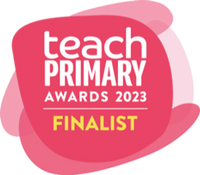Technology is an excellent teaching tool, but tech alone can never overshadow the value of a physical teacher being present in the classroom. What it can do, however, is revolutionise the way learners absorb and retain knowledge by providing activities and resources that enhance the learning process.
4 ways EdTech tools can enhance literacy skills
Educational technology plays a significant role in strengthening literacy skills in several ways. It leverages digital tools and resources to make the process of learning to read, write, and communicate more engaging, effective, and accessible.
1. Interactive and engaging content
“The sensation of being alive in the early twenty-first century consisted of the sense that our ability to pay attention—to focus—was cracking and breaking.” - Johann Hari, Author of Stolen Focus
According to research, Gen Z and Millennials communicate with others more digitally than in person (65%). This percentage is even higher in English-speaking countries, with the US (73.7%) and UK (74.4%) relying more heavily on digital channels for communication.
Therefore, is it really any wonder that it’s getting increasingly harder to sustain young people’s attention on non-digital platforms? So maybe education needs to evolve, not just in terms of content within the curriculum, but also in line with what is keeping young learners' attention.
“If we teach today as we taught yesterday, we rob our children of tomorrow.” - John Dewey
Literacy-based edtech platforms like Bedrock offer a wide range of interactive and multimedia content, such as e-books, videos and immersive activities.
And while these interactive approaches are great, the effectiveness of these platforms of course depends on the quality of content and the teacher's approach to using it. Bedrock Learning was designed by teachers, for teachers, being mindful not only that the platform must be learner-centred, but also be combined with impactful and insightful reports to drive engagement and inform teaching practice.
2. An opportunity to become even more inclusive
“ Education Technology gives the quietest student a voice.” - Jerry Blumengarten
In some areas of the UK, absenteeism has more than doubled, with the Department of Education calling an urgent summit to address issues surrounding the increasing challenges of managing pupil attendance.
Even so, these issues are not going away overnight, so it’s imperative that learners are provided with tools that enable them to carry on learning at home.
As well as this, technology can break down barriers to literacy by providing accessibility features for individuals with disabilities. Text-to-speech and speech-to-text software, as well as screen readers, can help learners with visual or reading impairments. This ensures that literacy education is inclusive. At Bedrock, all content and feedback is read aloud to learners by a team of actors, fantastic for those students with special educational needs. Research has shown that assistive technology, including text-to-speech tools, can help students with unique challenges overcome barriers to learning and achieve better learning outcomes.
3. Instant feedback
Marking and making the time to give feedback to learners is a constant struggle for teachers, with there not being enough time in the day, often taking marking home. This contributes to the already heavy workload, so it’s no wonder the teacher retention rate is at an all time low, with teaching secondary vacancies up 40% in 2 years.
Not only do technology platforms such as Bedrock save teachers time marking, but also allows for immediate feedback on writing, spelling, and grammar, helping learners identify and correct errors. This real-time feedback can be a powerful tool in the learning process, boosting learners confidence in themselves and motivating them to keep learning.
"It shows us our progress which is really helpful so you can see your improvement score of what you got in your pre- and post-test." - A learner at St. Mary’s Primary School (Watch the full case study for St Mary's Primary School here.)
4. Data-driven instruction
Educational technology can provide teachers with detailed and wide reaching data and analytics on their learners' progress. Teachers can use this information to identify areas where students may be struggling and offer targeted interventions.
At Bedrock, our assessment and reporting tools provide schools with deep, meaningful insights into how vocabulary, grammar and subject-specific vocabulary are improving at the trust, school, class and individual learner level. This comparative data can be used by teachers, literacy leads and Senior Leadership to inform strategic interventions and celebrate progress and improvement.
"As a Literacy Lead overseeing 32 secondary schools, it's a massive challenge. Bedrock Learning certainly gives me the insights and the possibility of penetrating the literacy vision within each of those schools." - Charlotte Evans, Literacy Lead at Harris Federation (Watch the full case study on data and reporting within the Harris Federation here.)





